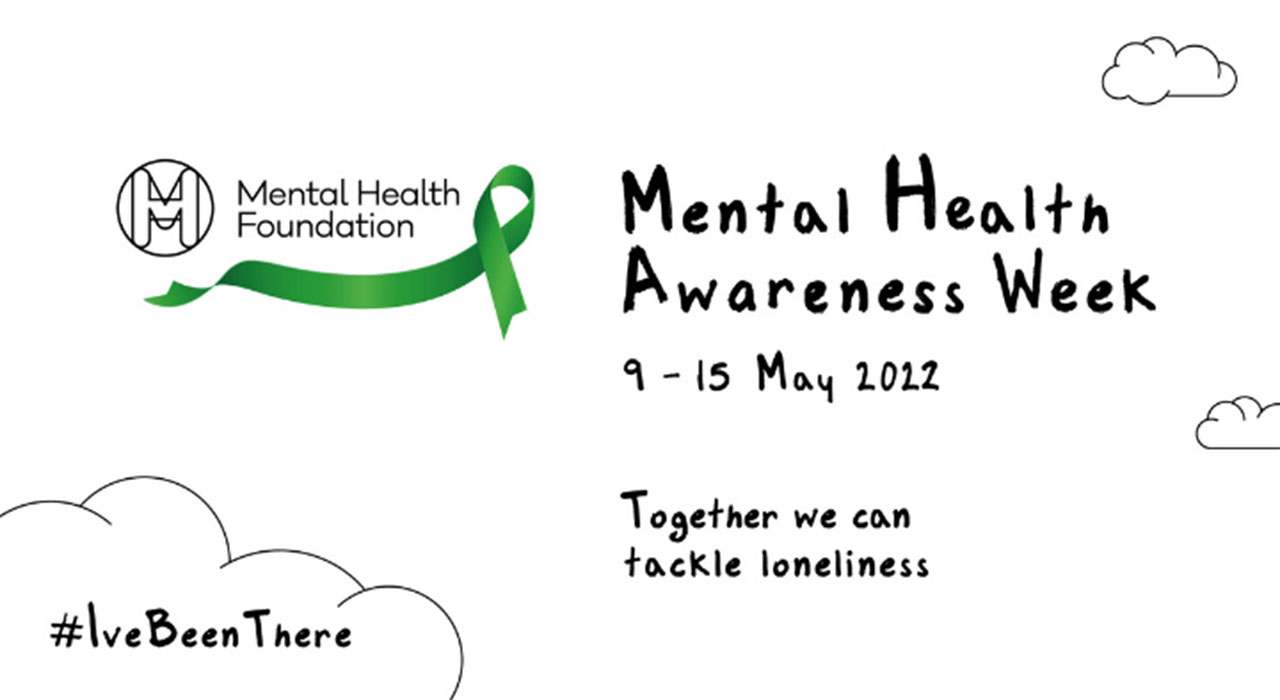The focus of ‘Mental Health Awareness Week’ (9th to 15th May) this year is ‘loneliness’.
What do you think of when I say lonely? What image comes into your mind?
Is it an older person, living on their own?
Is it a younger person, perhaps just starting Uni, and missing their family?
Is it a young Mum, unable to get out and meet people now that it all feels too much effort with a baby in tow?
It might be all those people, and you’ll see why in a moment.
Bad for our health
You probably think about loneliness as being a purely emotional state, but more and more research is showing that it can have a profound impact on both our physical and mental health in the long term.
So profound, in fact, that sustained periods of loneliness can be as harmful to our health as smoking 15 cigarettes a day.
That’s pretty shocking.
We all know by now that smoking is one of the most damaging things we can do to our bodies, and yet here we are, being told that loneliness is just as bad.
What IS loneliness?
When I looked up “loneliness” in the dictionary, it was pretty stark.
It defined loneliness as “sadness because one has no friends or company”.
That sounds a bit dramatic. We all have ‘company’ or people around us to some extent, even now, with our daily lives affected and disrupted by COVID-19.
So perhaps it’s more the perception of having no friends.
A social psychologist would agree, and define loneliness as a discrepancy between the connections that you need and the connections that you have.
A subjective feeling then, distinct from the objective idea of being isolated and physically alone.
Vivek Murthy, the ex-surgeon general of America, goes a step further. He describes loneliness as a lack of the different kinds of connections that we need.
He talks about the connection that his work has identified that we need to thrive as falling into three distinct categories.
The need for connection
The first is emotional loneliness, where we long for an intimate partner, or confidante to share life.
The second is relational, or social loneliness – the longing for quality friendships, while the third is collective loneliness – the hunger for a group or network of like-minded people who share your interests and purpose.
Deficiencies, as we perceive it, in connections in any one of those areas would lead to that sense of imbalance or discrepancy that the social psychologist would call loneliness.
I find that really interesting.
It means, doesn’t it, that we can have a loving partner and family, yet still feel lonely because we’re missing connections with those we would count as friends.
Or, we can have friends and family, but if those friends and family don’t share our hobbies and passions, we’re missing those collective connections, and then THAT can feel lonely.
I think it’s also interesting to take from that description the understanding that it doesn’t have to be a spouse or romantic person that provides our ‘intimate connections’. That we can feel contented, and not lonely, as long as we perceive that we have someone in our lives that fulfils that intimate, emotional connection.
What effect is this having?
So, what is this loneliness, this lack of connections, doing to affect our health?
It’s a depressingly long list.
Research shows that those who are lonely are more likely to suffer from physical issues such as obesity, sleep disorders, coronary heart disease, strokes, immune deficiencies, cancer, and other degenerative diseases like arthritis.
From a mental health point of view, people who describe themselves as lonely are more likely to develop dementia, and to have problems with excessive anxiety as well as other long-term mental health problems like depression. They have a higher incidence of issues with substance misuse – drugs and alcohol – and report higher levels of pain, too.
That’s already a long list of often interconnected issues.
But overall, just to sum it up, those who feel lonely are 50% more likely to die prematurely. A deeply sobering thought.
But who IS lonely?
The tricky thing is that we don’t always correctly identify our unhappiness as being loneliness.
That may be partly because, like the images I introduced earlier, we don’t feel we fit into that stereotype of ‘sad old lady’, ‘withdrawn young man’, or ‘depressed single mum’.
We can’t possibly be lonely if we have people around us, we think.
But it turns out that we can, unless we take care to seek out and balance those three types of connections.
Wanting to feel connected is a very primitive drive, to be part of a tribe.
For our ancestors, being part of the tribe was literally a matter of life or death. Being separate from the tribe meant no food, no protection from the elements or predators, and, obviously, no chance to further your genes by settling down with another lovely cave person – we’re driven by evolution to crave connection.
Even now, far from those caveman ancestors, we’re still driven to connect with others and indeed, our brains feel pain if we don’t.
The pain we call loneliness.
A pain that if we don’t address it, we might feel compelled to soothe with drugs, or alcohol, or release it by lashing out at others because we feel threatened, in a very primal way.
Effects on the brain
As with most things that I talk about as a solution focused hypnotherapist, the root cause of this pain will be the effects that missing out on those connections has on our bodies’ control centre.
On our brain.
As the coordinator of our nervous system, our immune system, AND our hormone system, whatever has an effect on our brain goes on to affect our body.
You might well know that the hormone oxytocin is involved in connecting to other people.
If we don’t learn to connect as babies to our carers, and others in our ‘tribe’, we can grow up with differences in our sensitivity to oxytocin.
Even if we learn to connect as babies, modern life can mean that we don’t get to nurture those connections and so our ability to harness the positive effects of oxytocin on our brains and bodies is diminished.
Oxytocin makes us feel good.
It also soothes our cardiovascular system.
Oxytocin calms our immune system, too, by reminding us that we aren’t under threat, that we are safe, and protected.
It directly relieves anxiety – anyone who’s ever hugged or comforted a sad friend, or child knows that – and it helps us deal better with stressful situations.
Harnessing our ability to connect with others
When we feel safe, protected, and happy, we are far more likely to put ourselves out to connect to more people, and oxytocin promotes this feeling of belonging and bonding. It even improves our social skills to be able to bond well and to defend and protect the people we feel even slightly connected to – and that can only lead to a less lonely world.
Remember too, that while it’s never quite the same as a real, 3D interaction face to face, that we can still work on our connections remotely, as we’ve all learned, via Zoom, or FaceTime, or on the phone – our ‘spider senses’ can generate oxytocin from those interactions through our familiarity with that person’s voice, or gestures, or facial expressions.
So, this Mental Health Awareness week, just think for a moment about your own social, emotional and collective connections.
Think for a moment about how you could strengthen and promote those connections, so that you, and all your tribe wherever they may be, can benefit from reduced feelings of loneliness.
That can only be a good thing, can’t it?
Claire Noyelle
Inspired To Change
p: 07712 220 880
e: claire@inspiredtochange.biz
w: inspiredtochange.biz
i: @inspiredtochange_claire
f: fb.com/hypnotherapymaidstoneeast/

